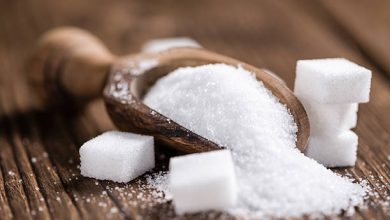8 foods that causes bad breath – Dentist reveals

This could be a sign of how strong the smells are for other people. Another option is to stand in front of a mirror and protrude your tongue as far as you can.
It could be an indication of foul breath if you see that the very back of your tongue has turned white.
Seeking a professional diagnostic from a dentist or physician is the most effective way to determine the exact cause of persistent halitosis.
When you’re prepared to address this, make sure you’re upfront and truthful with the medical practitioner doing the assessment.
In order to identify the underlying cause and suggest the best course of action, it is critical that they are aware of all the health issues you are facing.
WHAT ARE THE MOST COMMON CAUSES OF BAD BREATH?
Anyone can get bad breath, even people who are conscientious brushers and flossers.
It has less to do with oral hygiene and more to do with things like food you eat, medications you take and lifestyle habits that you engage in that can provide an environment favourable to anaerobic, sulphur-producing, bad breath related bacteria.
There are many underlying causes of bad breath, but the most common tend to be a dry mouth, often triggered by a lack of saliva through smoking, drinking alcohol, snoring and long periods of speaking to name but a few.
WHAT DOES BAD BREATH SAY ABOUT YOUR GENERAL HEALTH?
It’s worth remembering that oral health is so much more than just about maintaining a great smile.
The mouth is the entrance to our bodies and what we put in to it and how we treat it has an inextricable link to our overall health and general wellbeing.
According to studies, an estimated 10 per cent of all halitosis cases are caused by certain illnesses.
Individuals who suffer from diabetes, lung disease, kidney disease, cancer, liver disease, respiratory tract infections, or metabolic disorders often experience chronic foul breath due to dry mouth.
Sinusitis, pneumonia, bronchitis, post nasal drip, and polyps affect the airways and may also contribute to the problem.
Other common illnesses associated with bad breath include nasal odour and tonsil stones, yeast infections of the mouth, and gum disease.
Certain drugs such as antidepressants, high blood pressure medications, and antihistamines can factor into dry mouth because they reduce saliva production.
Please note, however, that halitosis is rarely associated with life-threatening diseases.
That said, it is important that you consult your doctor or dentist as soon as you notice consistent white spots on the tonsils and sores in the mouth with or without a fever.
Sometimes bad breath is triggered by severe health conditions such as throat or mouth cancers, human immunodeficiency virus (HIV) infection, digestive system disorders, or diabetes, and it can indicate dehydration or zinc deficiency.
Taking proper care of your teeth and visiting the dentist at least twice a year are the easiest ways to avoid these issues.
Contrary to popular belief, bad breath does not come from the stomach.
There is no open tube connecting the large intestine, small intestine and stomach to your oesophagus and mouth. If you burp you may release smelly digestive gas – but that is not bad breath, it’s bad gas.

WHAT ARE THE PRODUCTS AND INGREDIENTS TO AVOID?
Some toothpastes contains sodium lauryl sulphate (SLS), a soapy detergent that creates foam but has no cleaning benefit. The additive has recently been linked to serious side effects including canker sores.
It’s important to steer clear of alcohol-based mouthwashes as these can cause dry mouth, and just mask odours rather than killing off bacteria.
Regular and specific application of alcohol-free mouth rinses will help to calm the gum area and work to both eliminate germs associated with gum disease and reduce the formation of biofilm which leads to plaque and tartar build-up.
Clinical tests of patients treated with The Breath Company rinses repeatedly resulted in a complete elimination of over 98 per cent of the volatile sulphur compounds that cause bad breath.
WHAT ARE THE FOODS THAT MAKE BAD BREATH WORSE?
Halitosis can be exacerbated by certain foods such as onions and garlic because they contain smelly sulphur compounds, while dairy, meat, and fish contain dense proteins which are used as a food source by the anaerobic, sulphur-producing bacteria.
Refined and processed sugars also provide a food source for bacteria.
Coffee and juices can contribute to this problem because they are acidic and provide these bacteria with an ideal breeding environment.
WHAT ARE THE FOODS THAT CAN COMBAT BAD BREATH?
Eating your five a day is really good for your oral health and high fibre foods also help to prevent halitosis.
Fresh produce contains vitamins and minerals that build strong and durable teeth, while other abrasive foods help to get rid of odour-causing plaque- think of it like brushing your teeth while eating.
Fruits and veggies that are high in vitamin C help to reduce the plaque in your mouth as well and promote gum health, reducing the risk of gingivitis.
Since these foods have a high water content, they promote saliva production in the mouth, which beats dry mouth and flushes away bad breath.
Apples, celery and carrots, alongside other fresh produce will work to ‘brush’ the teeth as they contain a high level of good starch that rinses away dental plaque and are rich in vitamins and nutrients that will keep gums healthy.
Staying hydrated is also a key factor in keeping your mouth healthy.
Dehydration is caused by not drinking enough fluid or by losing more fluid than you take in and can be caused by many factors including illness, sweating, excessive alcohol consumption, long-term health conditions and poor diet and exercise choices to name but a few.
Dehydration can cause a range of oral health issues that include dry mouth, bad breath, cavities and gingivitis.
You can try drinking green and black teas as they contain polyphenols that help to eliminate sulphur compounds and reduce oral bacteria.




